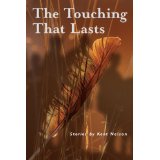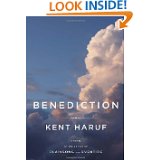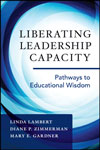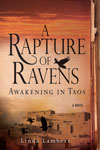writing
Newer Entries »Hemingway’s style continued….
Tuesday, January 7th, 2014
If you are lucky enough to have lived in Paris as a young man, then wherever you go for the rest of your life it stays with you, for Paris is a moveable feast. Ernest Hemingway
…as I was saying, Hemingway’s approach to writing–with his morning companions, whiskey and fine brandy–was to write to a peak moment. When he was in flow. Then break and allow ideas to germinate, slosh around while he spent time with others. He listened. He was creating and writing The Sun Also Rises at the time.
A second intriguing learning from Hemingway was how he found his “true” sentences for which he is most celebrated. If he were in need of one–but the “truth well” was dry–he went to the Louvre and sat in front of a painting by Cezanne. The true sentence thus revealed itself. Where do you find truth? Cross over into another creative discipline and listen.
Tags: Cezanne, Hemingway, Louvre, Paris, writing
Posted in Fiction, Paris, Travel, writing | No Comments » | Leave a Comment
New (necessary) Habits for Writing a Novel
Thursday, January 2nd, 2014
In the past week or so, I’ve written about the novel from several perspectives, including styles, fiction vs. non-fiction, behaviors to abandon, the story of two Kents, etc. The habits I write about here are the roles of others in our writing lives. Since I enjoy writing alone in my private world, I initially resisted the time necessary to involve myself in the thoughts of other writers.
Ah, but writing is not a singular life. Instead of losing time in the presence of others—those conversations projected my writing into new realms, new ideas, a process of jump frogging ahead. So when you return to your own manuscript, doors yawn open revealing new images.
I learned this long ago from Ernest Hemingway through his claims in A Moveable Feast. He would end his writing in the late morning when his creativity was in full flow and wouldn’t allow himself to think about it again until the next morning. The afternoon and evenings were spent with his son Bumby, Ezra Pound, James Joyce, Gertrude Stein….
Find your Hemingway, Pound, Stein, Joyce in a writing coach, a writing group, a writing conference or class, an insightful editor, or a critical friend. Staring in the mirror can be inspiring, yet staring into the eyes of others can provoke a new way of imagining the world.
Tags: Hemingway, Joyce, novel, Paris, Pound, Stein
Posted in Fiction, imagination, Travel, writing | No Comments » | Leave a Comment
Writing the Novel: Fiction versus Non-Fiction
Monday, December 30th, 2013
Post Dec. 28
The story of the two Kents (Haruf and Nelson) in my last post represented two ends of the cognition spectrum: stories that spring organically from experience…and stories that present themselves in a more systematic way. The common ingredient: imagination and fine writing.
Imagination is still the driving force, regardless of how we bring it to life. Because I had written non-fiction texts in leadership before turning to the novel genre, I brought along many strategies that serve me well in my former life. Many of those strategies got in the way!! They had to be discarded, often painfully.
In non-fiction, a writer leads the reader down a primrose path to understanding, bridging and looping ideas, repeating key points, closing arguments—all in service of thorough understanding.
But what about: Surprise? Puzzlement? Tension? Not if you can help it.My first draft of a novel read like a graduate thesis. But surely some practices served me well in fiction as well as non-fiction…what were they?
1) The discipline of writing—writing every day.
2) Tenacity—staying with the project until it is done.
3) Getting the ideas and story down quickly, revising later.
4) Not personalizing critique from self and others.
5) Rewriting, then rewriting again.
Next…New Habits for Writing a Novel
Tags: fiction, imagination, Kent Haruf, literary, non-fiction, novels, tossing out writing habits
Posted in Fiction, imagination, non-fiction, trilogy, writing | No Comments » | Leave a Comment
How to Write a Novel: a Story of Two Kents
Thursday, December 26th, 2013
Let me start by saying…that, of course, there is no formula. However I have the story of two Kents, both from Salida, Colorado, on the day that I talked with them. First, Kent Nelson (The Touching that Lasts) at lunch. Later Kent Haruf—the New York Times best-selling author of Plainsong and Benediction—at a book talk later in the day. They are both fine, poetic writers. I will tell you their approaches—then my own.

 Kent Nelson was driving along the highway south of Flagstaff, headed for Phoenix, when he spied a formally dressed man sitting proudly in a lavish field of grass. Kent pulled over, approached the man, sat down beside him, and coaxed out his story. Thus began a book of short stories, later a novel. No outline, no themes—at least at first—just a man and his story. Once he begins, the stories flow organically, one emerging from another.
Kent Nelson was driving along the highway south of Flagstaff, headed for Phoenix, when he spied a formally dressed man sitting proudly in a lavish field of grass. Kent pulled over, approached the man, sat down beside him, and coaxed out his story. Thus began a book of short stories, later a novel. No outline, no themes—at least at first—just a man and his story. Once he begins, the stories flow organically, one emerging from another.
Kent Haruf, on the other hand, is a quiet, interior man of precision. He outlines his books, organizes his work and time: a linear author of non-linear stories. Each character, action, shared interaction, and conclusion is part of a plan rather than serendipity.
Are you one of the two “Kents?” Is one approach better than the other? In my next post, I’ll describe how I write a novel.
Tags: Kent Haruf, Kent Nelson, novel, style
Posted in Fiction, writing | No Comments » | Leave a Comment
So—you want to write a novel…
Monday, December 23rd, 2013
It is said that vast numbers of people have—or believe they have—the GreatAmerican Novel inside them. Perhaps that is so, in that the novel blends our imagination and dreams, our biographies and experiences, our hurts and disappointments. We can decide how life turns out. We can shape our destinies.
A few ideas to consider as you undertake this magnificent, mammoth task:
1) Do you have a concept or story that will carry you through to the end?
2) Can you unravel the threads of your story into intriguing characters and sub-plots?
3) Will you discipline yourself to find the time to write each day?
4) Do you enjoy spending time alone, inside your own imagination?
5) Can you write fully, joyfully, and freely without worrying about publication? (more on that soon)
Next: How Do You Write?
Linda
Tags: novel, writing
Posted in Fiction, writing | No Comments » | Leave a Comment





 Conceptions of leadership have evolved, and Liberating Leadership Capacity captures these new ideas and provides a pathway to create sustainable systems of high leadership capacity. Available April 2016 from
Conceptions of leadership have evolved, and Liberating Leadership Capacity captures these new ideas and provides a pathway to create sustainable systems of high leadership capacity. Available April 2016 from  A sizzling new novel set in Taos, New Mexico. The third in the Justine Trilogy, preceded by the award-winning, The Cairo Codex and The Italian Letters. Buy it at your local independent bookstore,
A sizzling new novel set in Taos, New Mexico. The third in the Justine Trilogy, preceded by the award-winning, The Cairo Codex and The Italian Letters. Buy it at your local independent bookstore, 

